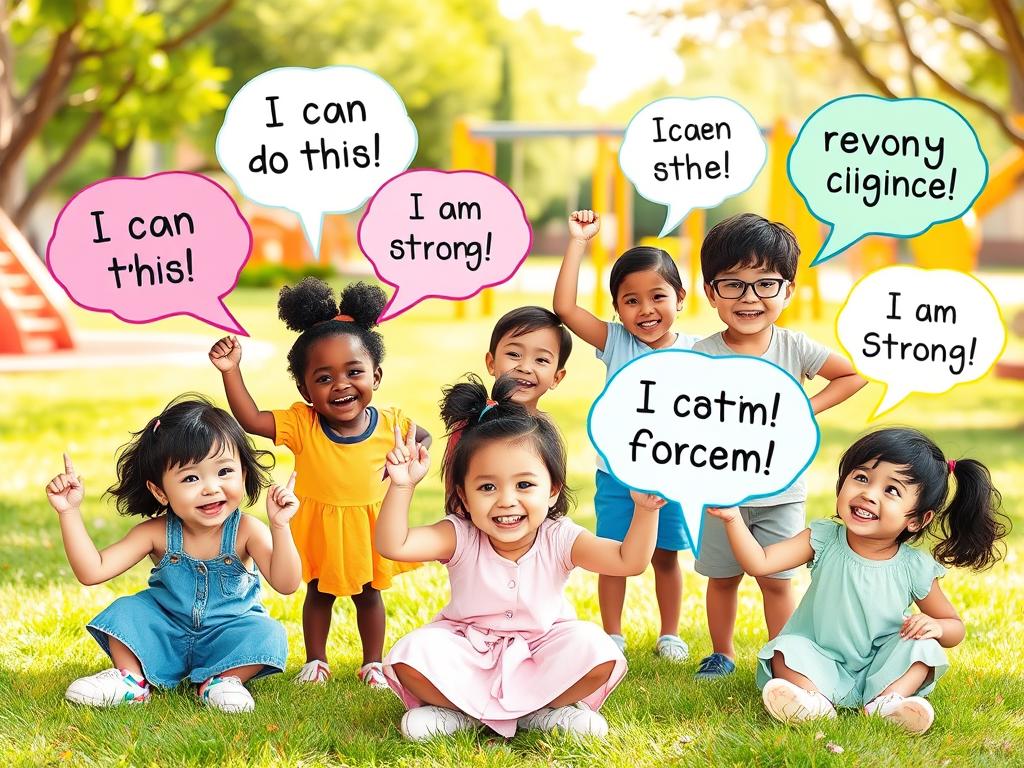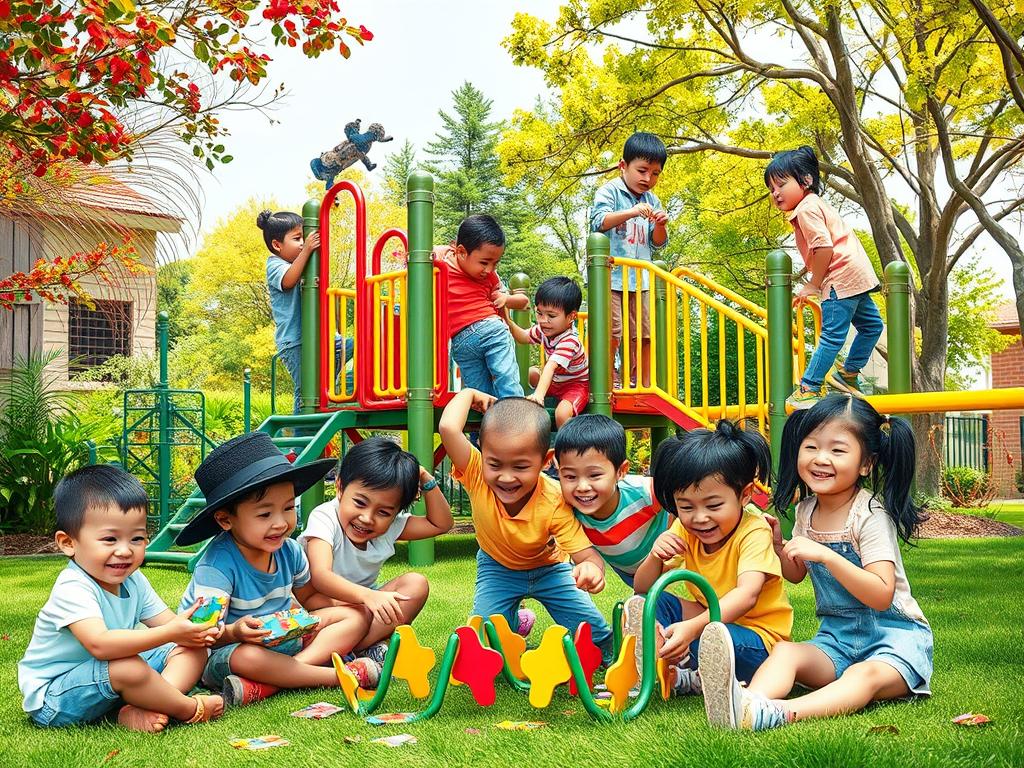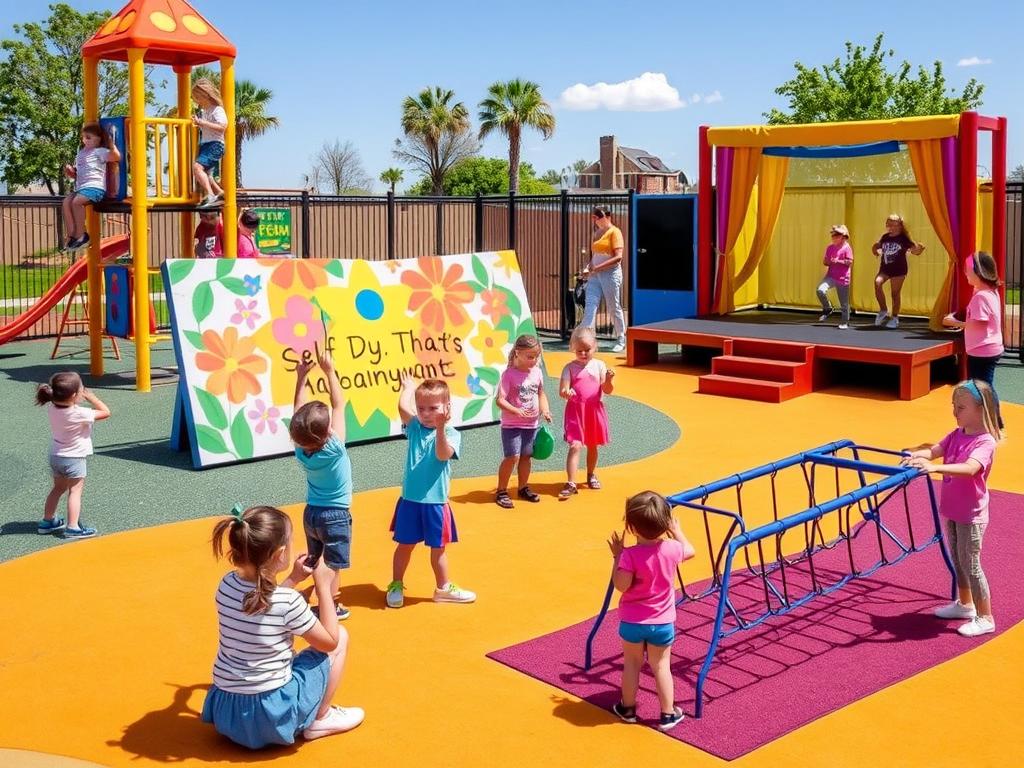Imagine a small classroom filled with kids brimming with ideas and creativity. Among them is a young girl, who hesitates to share her drawings because she fears they won’t be good enough. One day, her teacher encourages her to display her artwork on the wall. To her surprise, her classmates admire her work and ask her questions about it. In that moment, she realizes the power of sharing and the warmth of support. This experience not only boosts her confidence but also lays a foundation for her future endeavors.
The importance of nurturing confidence during childhood cannot be overstated. It shapes how children see themselves and their capability to navigate life’s challenges. In this article, we will explore the most important ways to boost children’s self-confidence, emphasizing the role parents and educators play in this vital aspect of development. A comprehensive approach involves celebrating accomplishments, embracing creative activities, and fostering resilience. With these strategies, we can guide children toward a more confident and fulfilled life.Learn how specific activities can help
Key Takeaways
- Engaging children in play enhances their self-esteem significantly.
- Celebrating small successes leads to a remarkable increase in competence.
- Encouraging risk-taking fosters resilience and courage.
- Positive self-talk is crucial for boosting children’s self-esteem.
- Creating a supportive environment is essential for building confidence.
- Modeling confident behavior influences children’s ability to cope with challenges.
Understanding the Importance of Self-Confidence
Self-confidence significantly shapes children’s lives, influencing their interactions and overall development. It is critical for young people to cultivate a strong sense of security in their abilities. Understanding self-confidence helps parents and educators recognize its impact on children. Confident children are more resilient, can navigate peer pressure, and handle life’s ups and downs with greater ease.
What Self-Confidence Means for Kids
For children, self-confidence manifests as belief in their skills and judgment. This sense of assurance allows them to face challenges positively. It fosters emotional well-being, boosting children’s self-esteem and encouraging them to take on new experiences without fear. Supportive environments enhance this sense of self, allowing kids to thrive both socially and academically.
Benefits of High Self-Confidence
The benefits of self-confidence are numerous. Confident children tend to exhibit better academic performance and stronger social skills. They are more willing to explore new opportunities, leading to personal growth. High self-esteem acts as a foundation for establishing healthy relationships. Children displaying self-assurance often inspire those around them, creating a positive feedback loop of encouragement.
Recognizing Signs of Low Self-Confidence
Awareness of the signs of low self-confidence can aid parents in addressing the issue early. Indicators include:
- Excessive self-criticism
- Avoidance of new or challenging situations
- Difficulty making friends or engaging socially
- Feelings of anxiety or insecurity
Addressing these signs early can lead to significant improvements in children’s self-esteem. With appropriate support and understanding, kids can learn to believe in themselves and their capabilities.
Encouraging Positive Self-Talk in Children
Fostering positive self-talk in children is essential for nurturing their emotional well-being and overall self-confidence. Parents can implement effective tips for boosting kids’ self-confidence by introducing children to affirmations. These affirmations help cultivate a positive mindset, reinforcing their sense of self-worth and ability to face challenges.
Teaching Kids Affirmations
Introducing children to affirmations serves as a key strategy in promoting positive self-talk for children. Simple phrases like “I am capable” or “I am loved” can empower kids. Parents should encourage their children to use these affirmations regularly, whether aloud or silently. To enhance engagement, families can create a display of affirmations in places where children frequently visit, such as bedrooms or playrooms.
Modeling Positive Language
Children learn significantly from their parents through observation. By using optimistic language and highlighting their own strengths, parents provide invaluable examples of supportive parenting. This establishes a culture of positive self-talk. Parents can cultivate a supportive environment by acknowledging their children’s achievements and demonstrating unwavering belief in their abilities.
Creating a Supportive Environment
An encouraging environment amplifies the effects of positive self-talk. Children thrive in spaces where they feel valued, appreciated, and free to express themselves. Interactive self-confidence activities for children, such as role-playing or creating strengths collages, can enhance their self-image and resilience. For further strategies on effective communication and understanding the importance of positive reinforcement, refer to this guide.

Setting Realistic Goals and Challenges
Establishing realistic goals forms a foundation for building resilience in children. By assisting kids in identifying and articulating achievable goals for kids, parents and educators can create a roadmap that helps them navigate their aspirations. Setting smaller, attainable goals fosters a sense of capability and boosts confidence. Children learn the significance of gradual progress, allowing them to experience success step by step.
Helping Kids Set Achievable Goals
Supporting children in the goal-setting process involves breaking down large aspirations into manageable steps. This approach contributes significantly to building resilience in children, as they learn to tackle challenges one at a time. Research highlights the importance of this method, demonstrating that when children feel capable of achieving their goals, their self-esteem improves substantially. Encouraging them to reflect on their accomplishments allows them to appreciate their efforts, reinforcing their motivation to pursue new challenges.
Celebrating Small Victories
Celebrating efforts in children plays a pivotal role in their confidence development. Recognizing and acknowledging even the smallest victories reinforces a child’s belief in their abilities. This practice encourages kids to understand that success comes in various forms, not just with grand achievements. By celebrating their accomplishments, children become more inclined to take risks and face new challenges head-on, instilling a positive outlook that propels them forward.
Encouraging Growth Mindset
The idea of a growth mindset in kids emphasizes embracing challenges as opportunities for learning rather than setbacks. Encouraging this perspective helps children develop an attitude that values effort over outcome. When children perceive obstacles as chances to grow, their resilience increases, and they feel empowered to tackle difficulties. Share stories of individuals who persevered through challenges to inspire kids, showing them that persistence and self-belief can lead to remarkable transformations.

In summation, integrating these strategies fosters an environment where children thrive emotionally and socially. Setting clear, achievable goals forms the groundwork for building resilience, while recognizing milestones boosts their confidence and encourages a growth mindset. For more actionable strategies, explore resources available at this link.
Fostering Independence and Responsibility
Fostering responsibility in kids is essential for building their self-esteem and overall confidence. Involving children in age-appropriate chores enables them to feel capable and necessary within the family structure. This hands-on experience not only instills a sense of accomplishment but actively contributes to promoting self-belief in kids.
Age-Appropriate Chores
Implementing a routine of age-appropriate chores helps children understand the importance of contributing to their household. Tasks such as setting the table or sorting laundry may seem simple, but they empower kids while teaching fundamental skills. Children who engage in these chores often experience a boost in self-confidence as they observe the positive impact of their efforts on their families.
Allowing Choices and Decision-Making
Giving children choices is another significant step in fostering responsibility in kids. Whether it’s choosing between two outfits or deciding what to have for snack, these small decisions cultivate invaluable decision-making skills. Offering limited choices keeps stress at bay while allowing independence activities for children to flourish.
Supporting Independent Play
Unstructured playtime encourages creativity and problem-solving, essential components of self-reliance. Children who have the freedom to direct their play often become more resourceful. Encouraging independent play provides kids the opportunity to learn from their environment, contributing to their overall development. This type of play, paired with structured activities, reinforces the skills necessary for achieving personal goals. For tips on fostering confidence through engaging activities, refer to these strategies.

Promoting Healthy Risk-Taking
Encouraging risk-taking in children is vital for their development. Understanding fear and embracing failure helps kids build resilience and confidence. Children with positive self-esteem often display a sense of individuality and a belief in their worth. As they face challenges, parents can support their journey of overcoming fear of failure by promoting safe environments that foster healthy risk-taking.
Understanding Fear and Failure
Fear often stems from the anticipation of failure, leading some children to shy away from new experiences for kids. Teaching kids that failure is a natural part of growth enables them to view challenges as opportunities rather than obstacles. By recognizing emotional signs of low confidence, such as anxiety in social settings, parents can guide their children towards healthier perspectives about fear and setbacks.
Encouraging Seeking New Experiences
To foster healthy risk-taking, it is essential to encourage children to step outside their comfort zones. Simple actions, such as trying a new sport or exploring a new hobby, can empower children and reinforce their self-image. When children are praised for their efforts and encouraged to embrace new experiences for kids, they develop a greater sense of competence and confidence.
How to Support Kids in Trying New Things
Supporting children in trying new activities involves both understanding and participation. Engaging in challenging tasks together can create a nurturing space, allowing kids to learn from their mistakes. Modeling positive behaviors and encouraging children to take risks helps build their resilience and self-esteem. Resources, such as strategies for boosting self-esteem, provide effective guidance to foster this growth.
Building a Strong Support System
A solid support system is a cornerstone in ensuring a child’s self-confidence develops in a healthy manner. The family plays a pivotal role in self-esteem by offering unconditional love and support. Consistently engaging with children, encouraging their interests, and acknowledging their efforts cultivates an environment where they feel valued and secure. When parents and guardians provide this grounding, children are more likely to explore, take risks, and ultimately become self-sufficient individuals.
The Role of Family in Self-Confidence
Families that emphasize respect, individual strengths, and constructive feedback help nurture children’s self-esteem. By avoiding excessive criticism and celebrating even small achievements, they foster a sense of belonging and competence. The importance of friendships for children cannot be overstated either, as social connections provide unique opportunities for developing vital social skills. When children practice interacting with peers, they enhance their ability to empathize, communicate, and stand confidently in social settings.
Importance of Friendships and Social Skills
Having friends can greatly impact a child’s emotional well-being. Positive relationships foster resilience and help children manage challenges, making them more adaptable and self-reliant. However, it is equally crucial to recognize when a child might be struggling and in need of professional help. Seeking guidance ensures that any underlying issues are addressed promptly, allowing the child to thrive in both personal and academic realms. For more insights on what children need for life skills development, explore additional resources on building a support system for kids.











